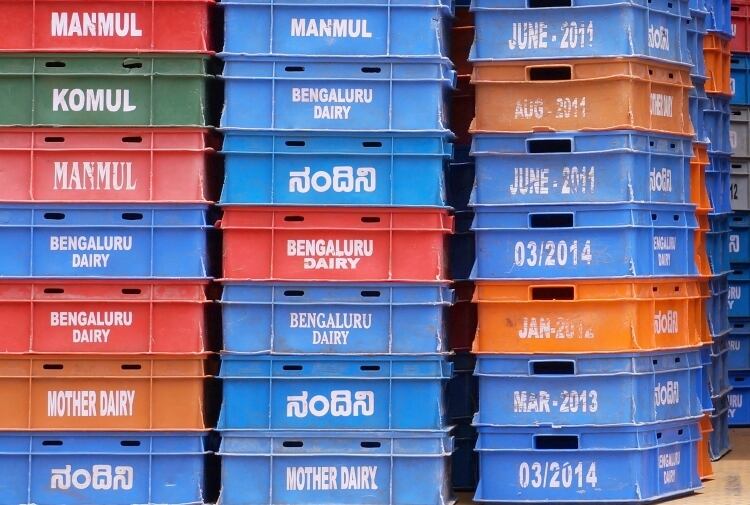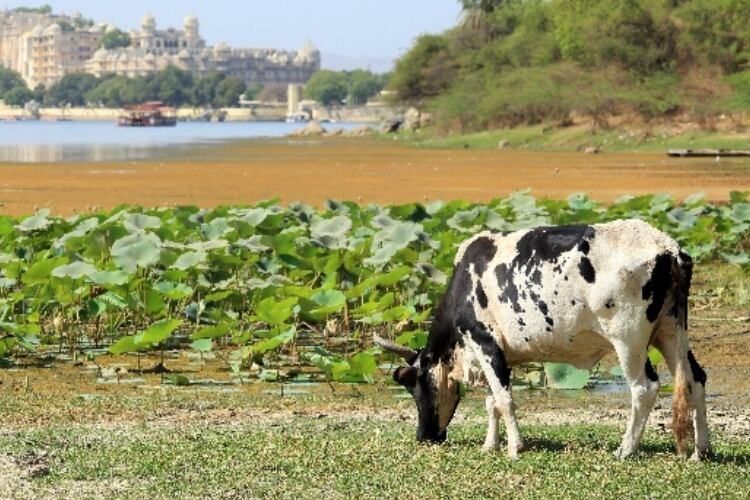On January 16 it was announced that French foods corporation Danone would return to the India dairy products category a year after exiting its most of its portfolio with its tail between its legs. Its investment arm, Danone Manifesto Ventures, has led a Series C funding round for a stake in high-end yogurt brand Epigamia.
This isn’t exactly wading hips-deep back into the country’s dairy market by any measure for such a vast conglomerate with seven years’ previous experience in India under its belt. This is especially so since Epigamia is present in only five cities, and mostly available through modern retail, a minority format. But the publicity surrounding the move has signaled the French are back.
Then on January 21 it was announced that Danone’s compatriot, Lactalis, would acquire the milk products’ business of Prabhat Dairy for INR17bn (US$239m) in its third takeover deal in the country.
It was a curious move by the Indian company to sell off a business that nets Prabhat, by most estimates, 98% of its turnover. The sale sent shockwaves through investors who were incredulous that the business they had bought into had been sold from under them. Prabhat would shed 55% of its market value in just two days. Now free of its dairy business, it plans to use the proceeds from the transaction to invest in the expansion of its fledgling animal nutrition business.
Lactalis made the deal through its local subsidiary, Tirumala Milk Products. It could take six months to compete and is subject to mandatory approvals.
More investment potential
Indian dairy firms old and young will be licking their lips now, knowing that big global names are looking for grateful targets. Indeed, according to a Reuters report last year, Danone was planning to invest in 20-25 firms by 2020 through its investment arm.
But it is no secret that the French FMCG business has been troubled before by India's dairy market. Despite having its own milk procurement infrastructure and creating its own category of flavored yogurt and yogurt-based beverages in India, the business failed.
Lactalis will also be of mind that India can be a tough playing field for foreigners. It will have gained some knowledge of the market, having acquired South India’s second-biggest dairy firm Tirumala Milk in 2014 and bought a majority stake in Indore-based Anik Industries in 2016.
Its decision to operate through acquisitions is a wise move given the difficulty many foreign companies have in understanding sourcing and distribution in India. But in many cases the cards are still stacked enormously in the favor of the incumbent.
Traditional retail
All but INR5tr of the INR6tr Indian dairy market comes from traditional retail. The remaining INR1tr organized dairy market, where Danone and Lactalis play, is dominated by cooperatives in almost every state.
The National Dairy Development Board, which owns Mother Dairy, in the north, and Karnataka Co-operative Milk Producers' Federation, which owns Nandini, in the south, are among the best known of these co-operatives. Private players include companies such as Hatsun Agro in Tamil Nadu, Heritage Foods in Andhra Pradesh and Parag Milk Foods in Maharashtra.
Also present in the domestic dairy market are heavyweight food companies such as Britannia and Patanjali in ghee and other products. ITC has big plans for dairy, including an array of milk-based beverages and frozen desserts that will be rolled out of its Kapurthala plant in Punjab in the near future.
Together, Indian firms have nailed distribution. Amul alone is available in more than 5m stores, while Danone, in its previous foray, could only be found in some 50,000 supermarkets and store chains. Since the French company didn't have a vast distribution network, it was available mostly in modern retail stores, a minority channel.
Low margins
Then there’s the economies of scale. The Indian Dairy business is one of low margins, with growth of just 6-7% considered healthy. By comparison multinationals tend to be used to growth upwards of 25%.
To illustrate the disadvantage at which multinationals find themselves compared to local dairy companies, a one-liter carton of Amul milk in Mumbai might cost INR62 compared to INR75 charged for a locally made foreign brand.
RS Sodhi, managing director of the co-operative that markets the Amul brand of milk products, said multinationals were unable to operate at the margins enjoyed by local players.
"Our cost of production is hardly anything on packet milk and for value-added products we are able to manufacture at half the price of what multinationals do. These savings are passed on to consumers," said Sodhi.
Old guard
Danone discovered owning its own distribution and supply chain, as it does globally, could not work on these margins in India. Owning a cold chain fleet involves huge costs and can never be profitable.
So what has prompted Danone’s return and Lactalis’ continuing expansion? In the latter’s case, there have been suggestions in the press that the Prabhat acquisition was motivated by politicians.
Not only did the Indian company sell its entire core business on the basis of which it had raised money from the market, Lactalis also paid hundreds of millions of dollars for a business whose revenues mostly come from selling powdered and liquid milk to consumer companies. This is not exactly in line with the French company’s business model.
Dairy-watchers will be looking with interest at Danone’s investment strategy over the next year and attempt to unpick the rationale of the Lactalis deal in the hope they can determine it a sound move for both parties.
At the same time the grand old names of Indian dairy will sit back and watch them, their bosses displaying wide grins as they consider why these gorah businesses keep trying. Until something drastically changes, and that’s not likely, the hegemony—and economies of vast scale—will remain in the hands of the old guard.




